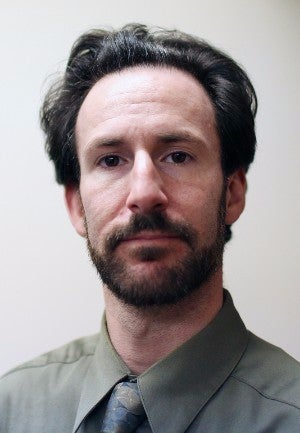LENS Dispatch
The Perils of Prediction
Why Prognosticators Get it Wrong
 PHOTO: Michael F. McElroy
PHOTO: Michael F. McElroyJustin Buchler, associate professor
Political pundits can be forgiven for being a little wary about predicting the outcome of November's election. After all, the 2016 election cycle has been unlike any other in modern times.
Still, Justin Buchler, PhD, is willing to go on record. In an interview in early September, the associate professor of political science at Case Western Reserve believed the odds favored former Secretary of State Hillary Clinton.
"By this stage in the campaign, the candidate ahead in the polls has a very strong tendency to win," he wrote in an email, adding that the Democrat also could win some traditionally Republican states due to Donald Trump's unpopularity.
Buchler, who taught a class last year about predictions and why they're so often wrong, points to this year's primary season as a powerful demonstration of the perils of political prognostications. To wit: Trump, a political outsider and businessman, captured the Republican nomination against the expectations of virtually every prognosticator. Pundits missed Trump's chances, Buchler said, because they relied on their own biases rather than heed the polls. Similarly, while democratic socialist and Vermont Sen. Bernie Sanders dogged Clinton until the end of his campaign, Buchler said many commentators overestimated his chances by ignoring the fact that he never led in the national polls.
So, can any predictions be trusted? Watch multiple polls, Buchler said, look for the averages among leading polls and don't be distracted by the outliers. Or watch the betting markets, which he said are heavily influenced by the polls.
Buchler also writes The Unmutual Political Blog (theunmutual.blogspot.com), weighing in on politics, music and other matters. And that's where he mused in April—well before Trump clinched the nomination—that Indiana Gov. Mike Pence was the best bet to be the GOP's vice presidential nominee.
That spot-on projection came not from polls, but Buchler's own assessment of how Pence's strengths balanced Trump's shortcomings. "He has both legislative and executive experience," Buchler wrote at the time, "conservatives trust him, and he doesn't do anything reckless. He is the anti-Trump."
Of course, we had to ask Buchler to pony up three predictions for November's election. But if he's wrong about any of them, go easy on him. Our deadline was mid-September.
Calling the Election
- Clinton has a 75 percent chance of winning the presidential election, with Trump's chances being based primarily on an "October surprise" such as an economic downturn or a terrorist attack.
- The GOP will keep its majority in the U.S. House of Representatives.
- Whichever party wins the White House will win a majority in the U.S. Senate.





